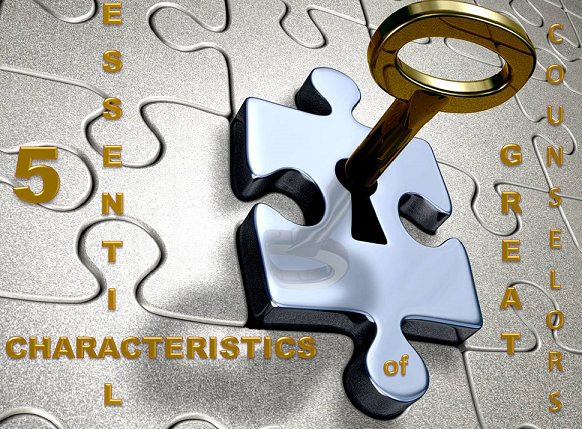Mindfulness – Let Us Begin
Many of us equate mindfulness with  meditation as we have seen or heard of in the practices of Buddhism and Hinduism, which you may picture as something like the picture to the right. While this is one way or practicing mindfulness, it is not the only way, and it is not all that mindfulness truly is. As such, it is important that we start with a working definition of mindfulness.
meditation as we have seen or heard of in the practices of Buddhism and Hinduism, which you may picture as something like the picture to the right. While this is one way or practicing mindfulness, it is not the only way, and it is not all that mindfulness truly is. As such, it is important that we start with a working definition of mindfulness.
For our purposes, we will use the definition presented by the American Psychological Association, “Mindfulness is awareness of one’s internal states and surroundings.” Let’s brake this down a bit further.
We will begin with awareness. Awareness incorporates the knowledge of something and the perception of where that something exists. For example, we are aware that the Sun is approximately 93 million miles away from Earth. So how does this apply to mindfulness? Mindfulness is an awareness of self, that being physically, mentally, emotionally, and spiritually (our internal states). While we may be aware of parts of each of these on a daily basis, not many of us are so thoroughly practices in mindfulness that we are able to maintain awareness of all of them, in each moment. Add to this the definition’s statement of “awareness of one’s … surroundings” and we find ourselves in an overwhelming pile of information.
This is where mindfulness practice comes in.
In our day-to-day, mindfulness practice begins with the most basic of functions: our breathing. It is our breathing, and our awareness of and attention to it, that serves as the first stone on our path to greater Mindfulness. The late Thich Nhat Hanh, a Vietnamese Buddhist monk, teacher, and writer, is quoted to have said, “Feelings come and go like clouds in a windy sky. Conscious breathing is my anchor.” That last sentence in the quote is where we begin. Not just in breathing, but in bringing our conscious mind, our focus, to our breathing.
So let us practice this for a moment. 1) Close your eyes. 2) Place your hand over your belly. 3) Take a deep breath in. 4) Do this for about fifteen seconds, trying to maintain your focus just on the rise and fall of your belly as you inhale and exhale. 5) When you feel that approximately fifteen seconds have passed, open your eyes. You may even count your breaths (to 15) rather than focus on the time. Either way, your breathing is more important than a timer.
After you have done this practice, how do you feel? In that fifteen seconds, did you feel your mind wonder to other things? Did you forget to count your breaths? Did you feel yourself doze off a little?
All of these are perfectly natural, but I want to focus on the first question: how do you feel?
You see, mindfulness is a tool. Yes, it can be a way of life, and for many, with practice, it has become just that. The same can be true for each of us, with practice, but for our purposes, I would like you to think of mindfulness as a tool for helping you cope with stress. But how can a focus on our breathing help us to cope with or manage our stress? Think back to my question in the last paragraph: How do you feel? How did you feel after just that fifteen breaths or fifteen seconds of deep breathing? I’m willing to bet that you felt a little less stressed than before the practice.
So how can we take this a step further and begin on the path to a deeper level of practice? “The journey of a thousand miles begins with one step” (Chinese proverb).
That first step? Continue the focus on your breathing.
Now this does not require you to sit in a Lotus position or have chants playing in the background or any other such misconstruction. Rather, this is just taking time to spend “with your breathing.”
Try this. Each day for the next week, give yourself five minutes per day (it may be a good idea to put this in your calendar) to just take the time and focus on breathing. Here are a few steps you might follow:
 Find a quiet spot
Find a quiet spot- Have a seat
- Place your hand on your belly and close your eyes
- (optional) Use your phone timer and set it for five minutes
- Focus on the rise and fall of your belly as you inhale and exhale
That’s the wonderful thing about mindfulness: the simplicity of the first steps.
“But what if I get distracted in that five minutes?” Simply put, then you get distracted. Tomorrow is a new day and a new chance to try again. For that matter, later in the day is a new chance to try again.
“What if I want to go longer than five minutes?” Awesome! Go for it. The timing really is up to you. I suggest five minutes because, for beginners, that can seem like an eternity.
“Do I have to do this alone?” Nope! If this is something that a friend wants to try with you, the more the merrier. Just make sure that you have the same goal so that you do not distract each other. Our minds distract us enough.
“What do I do with my hands?” Put them in a place that is comfortable. This may be in your lap, on your knees, on the ground or chair beside you. It truly is up to what is most comfortable for you. Again, we want this to be a time where the focus is just on your breathing.
At the end of your practice, as yourself these question:
How do I feel?
Am I less stressed?
Am I more focused?
“Is it really that simple?” It really is that easy to begin.
The next steps and the next posts will give you more steps to guide your practice and to help manage your stress. Keep checking back, and always ask questions if something does not make sense.
The Need for Self-Care
“Every one of us needs to show how much we care for each other and, in the process, care for ourselves.” — Princess Diana
No matter our profession, we experience increased stress levels due to the requirements of our work. This is why we encourage our clients and each member of our team to regularly engage in activities that bring them joy and peace. As the old adage goes, “we cannot pour into others when our cup is empty.”
Below, we have included a few guides for self-care; however, we always encourage you to intentionally engage in those activities that best work for them.
Examples:
- Time in nature
- Meditation/Mindfulness (guides)
- Reading a good book
- Hobbies
- Time with family/friends
- Exercise (guides)
- Personal counseling
- Collaboration with colleagues for decompression sessions after a long day
- Getting plenty of sleep each night so that your body has time to heal and recover (Need to track your sleep?)

This list can go on and on, but the most important part is that it is what soothes you.
The Essential 5 Characteristics of a Great Counselor That A Client Must Have to Find Balance, Harmony and Transformation
The Essential 5 Characteristics of a Great Counselor
I was asked, “What are the 5 Essential Characteristics of a Great Counselor in Houston?”, which caused me to think seriously about what a client must have to find balance, harmony and healthy transformation. This was an opportunity for me to reflect regarding whether I am practicing accordingly and make some changes, if needed. Here is what I discovered.
- The first essential characteristic of a great counselor that a client seeks is a good confidential listener. A primary purpose of counseling is an outlet for expressing what the client sees as distress within their psyche. That distress may be depression, anxiety, lack of self-confidence, a sense of wandering through life aimlessly or any number of other types of distress. A great counselor listens to what the client says, how the client says what they say and sometimes hears meaning in what the client does not say. A great counselor listens with ears, eyes and heart. The confidential part must not be overlooked. For a client to have trust in a counselor they must believe that what they are sharing is held in strict confidence. An exceptional counselor is a confidential listener.
- Another essential characteristic of a great counselor is that they be non-judgmental. For the client to feel free to share their distress, they must also believe they are not going got be judged. Oftentimes, it is the fear of being judged by others that keeps individuals from sharing what is troubling them with friends and family. They must know without a shadow of a doubt that the professional counselor they choose to share their troubles with will not engage in judgmental thoughts, statements or actions. A great counselor is non-judgmental.
- Along with being non-judgmental, an essential characteristic of a great counselor is that they listen as a non-vested participant. When someone shares their troubles with a friend or a family member, that friend or family member may have a vested interest in what they choose as a response. For example, if Shelia is talking to Grace about what to do about a mutual friend Gloria, Grace’s response may be clouded with how the situation may work out best for Grace rather than Sheila. Non-vested does not mean non-caring, it simply means that the guidance that a great counselor provides is given with the sole perspective of what is the best path for the client to find balance, harmony and transformation. A high performing therapist is non-vested.
- A fourth essential characteristic of a great counselor is the role of guide along a life’s path. A great counselor uses their skills as a confidential, non-judgmental, non-vested listener to assist the client in the process of discovering their own path toward balance, harmony and transformation. A great counselor helps clients see the obstacles in their path and helps with the decision process of what to do with those obstacles. Some obstacles may be handled best by simply rolling them out of the path. Others might need to be disengaged by changing a response, if the breaker is turned off, the light will not come on when the switch is flipped. Whatever the obstacles in the life path, an effective counselor provides guidance along the path of life.
- The last of the five essential characteristics of a great counselor is something of a bit of each of the previous four. A great counselor is good with puzzles. Similarly, as in the case of crossword puzzle, finding that right answer to 34 down makes all of the across answers connected to it, make more sense. A thoughtful counselor can make pertinent suggestions for 34 down. When doing a jigsaw puzzle, you might define the boundaries first, then group the like pieces together and finish sections at a time. An observing, astute counselor will notice the nuances in a particular piece that identify it as belonging to a different section of the puzzle than was originally thought. Placing that piece in the right section will remove it from a section that it simply did not fit into and use it to complete a section that was missing a piece. For many of us, life presents puzzles. A great counselor is good with the puzzles that clients bring into session.
These characteristics of a great counselor have helped my clients hundreds of times. While they are not the standard skills, typically, listed by counselors such as empathy, caring, positive regard, etc., they are the skills that I have observed over the years that meant the most to my clients. Clients find balance as they feel heard by a non-judgmental, confidential listener and come to know that their struggles are real and that they can find ways to work through their struggles. Clients find harmony as they clear the obstacles in their path and find the way more peaceful. Transformation comes as the puzzles that led clients to counseling are no longer puzzles and their lives feel complete with the skills to spend time on a path to inner peace.
Rosemary Behrens, PhD, LPC-S
Inner Peace Counselors
832-470-7890
Facebook: https://www.facebook.com/Inner-Peace-Counselors





